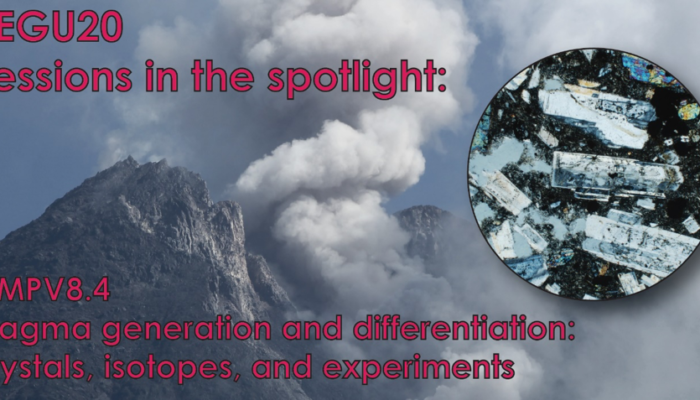
Today in the #EGU2020 sessions in the spotlight series (our last one before the holidays!), it’s GMPV8.4’s turn: Magma differentiation: crystals, isotopes, and experiments, organised by Frances Deegan (Uppsala University), Ben Ellis (ETH Zurich), Carmela Freda (INGV Rome) and Valentin Troll (Uppsala University). Keynote speaker: Marian Holness (Cambridge University).
Crystals that grow in magmatic rocks (either intrusive rocks or lavas) are like flight recorders in aeroplanes –they store information about the physical and chemical conditions they have experienced during growth and as they are transported through the volcano-magma system. The range of processes that can be recorded in crystals include those that operate in the magma source region, as well as those that typically occur at in the crust (e.g. fractional crystallisation, crustal assimilation, or magma mixing). In this session, we are calling for contributions that utilise crystals and rocks as witnesses of magmatic processes, for example by employing the chemical and isotope records contained within them to reconstruct magmatic processes and histories and to better constrain sub-volcanic processes and phenomena. Recent advances in analytical geochemistry now offer a whole host of cutting-edge analytical approaches that can be utilised to extract geochemical information from an intra-crystal scale and we would like to showcase these kinds of studies in our session. We also welcome contributions from studies that use experimental methods to replicate magmatic processes and thus give us hands-on evidence of pre-eruptive magmatic processes. We look forward to seeing you in Vienna!
By Frances Deegan
